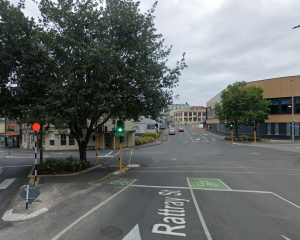Otago Polytechnic is about to launch a world-leading educational resource with the potential to help millions of people in developing nations.
Chief executive Phil Ker will travel to Canada next week to launch the Open Educational Resource (OER) university, which has been spearheaded by a team at the Dunedin campus.
Mr Ker said it was a proud moment for the polytechnic, which would benefit from global recognition as a result.
''We are really proud to have been able to facilitate a global initiative which involves a whole lot of very notable institutions worldwide. We are proud that little old Otago Polytechnic can facilitate something of this scale from Dunedin,'' he said.
Three years ago, the polytechnic established the Open Education Resource Foundation with the aim of providing free educational services, and making education more cost-effective for all by using free resources already available on the internet.
The polytechnic spent a little over $150,000 setting up the foundation, from which the OER university project developed.
Mr Ker said the online university was aimed at making internationally recognised qualifications available to those who could not otherwise afford to study.
''You could call it a philanthropic or charitable initiative,'' he said.
''The benefits are really around the development of free resources and the collaborative development of programmes. There is also a significant reputational benefit to the polytechnic in ... getting our name out there on the global stage and having global visibility.''
Traditional online learning resources either came at a cost or did not result in a valid qualification, so the OER university was unique, Mr Ker said.
''Harvard and other significant establishments have been offering free learning now for a year but the difference is that it doesn't lead to a credential, so it's learning for interest. This actually provides you with a qualification ...
and the OER university model is unique because it's been developed collaboratively by all the partners.''
They included universities and tertiary institutions in Australia, the Pacific, Canada, the United States, United Kingdom, South Africa and India.
The OER university would initially offer a ''general tertiary studies degree'' - the equivalent of a three-year bachelor of arts. Although anyone could teach themselves through the online university from anywhere, there was no concern about providing free what thousands of students already paid for, he said.
Those planning to attend tertiary education institutions were unlikely to choose self-taught programmes on the internet.
''This is a self-service model so if there are people in New Zealand that want to teach themselves, they can do this and they will, but those people aren't going to come to polytechnic to be taught anyway.''
Courses through the OER university were aimed at people in developing nations, and did not replicate all specialist study at paid institutions, he said.
The second qualification, to be introduced next year, was a graduate diploma in tertiary education for people who wanted to become teachers.
''There's a lot of demand in developing countries for that ... for people to gain the skills to be tertiary teachers.''
Mr Ker said the OER university was now self-sustaining and although staff were based at the Dunedin campus, the polytechnic no longer had to underwrite it.
''We've had international funding and we've been signing up members of the foundation who pay an annual membership fee and that also helps fund the development.''
As part of next week's launch, chief executives from partner institutions will hold a three-day planning meeting to discuss the university's future development.
Open Education Resource Foundation director Dr Wayne Mackintosh was leading the project from Dunedin.












